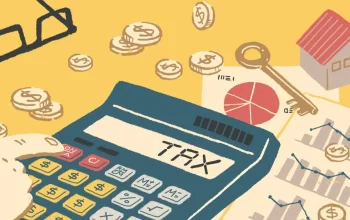NFTs have become an invaluable way for companies to engage with consumers in unique and engaging ways, while simultaneously tapping into an emerging group of digitally native users.
NFTs were thrust into the spotlight following the COVID-19 pandemic and high-profile sales of digital artwork such as Beeple’s $69 Million sale. Unlike physical art pieces, NFTs are inviolate.
Taxes
NFTs use blockchain technology to verify ownership and transfer of assets. They’re sold on digital marketplaces that may be open or closed – an open marketplace allows anyone to buy and sell them while closed marketplaces or curator-curated marketplaces require approval by an artist before an NFT can be “minted” (published onto the blockchain).
As with any investment, NFTs carry risks but their value could increase with time. Celebrities often invest in these investments with the intent to make money and often employ teams of specialists to oversee them.
NFTs have quickly become a go-to method for artists looking to monetize their work and collectors looking for unique digital assets. NFTs have also gained immense popularity within gaming as they represent in-game items; Twitter co-founder Jack Dorsey sold his tweet as an NFT for over $2.5 million as proof of their worthiness. NFTs can prove incredibly valuable.
Regulations
NFTs provide more than just potential financial gains to artists and other digital creators – they enable people to own unique digital representations of creative works which can then be traded online.
NFTs can be sold through private sales, auction houses (such as Sotheby’s or Christie’s ) or online marketplaces like OpenSea, Rarible, Binance or Nifty Gateway – often using cryptocurrency to access them and then being stored in user wallets.
As NFTs gain in popularity, their use is subject to various regulations. These obligations range from “know your customer” requirements for identification and verification as well as record-keeping to meeting anti-money laundering, financial crime and sanctions regime requirements; or even investment laws which treat NFTs as securities. Purchaser due diligence is important when purchasing NFTs that incorporate smart contract functionality; this could include any rights related to future cash flow or assets encoded into tokens.
Legal Issues
As NFTs gain in popularity, legal issues may emerge. NFTs may violate moral rights (a form of intellectual property that protects non-economic aspects of an author’s work). While specific jurisdictions vary on this point, often times moral rights include rights such as attribution and integrity protections.
Similar to NFTs, non-financial trading systems may breach copyright. This poses a problem as NFTs could be used to produce and sell counterfeit works or non-legal NFTs; furthermore they could also be utilized for wash trading or insider trading purposes.
NFTs raise both copyright and privacy and data security concerns, since criminals could use these platforms to access customer data or digital wallets through fraudulent activities like phishing schemes or virus attacks on NFT platforms. Therefore, any buyer of an NFT should perform their due diligence when considering purchasing one and review all terms of sale carefully in order to minimize risks.
Future
NFTs can be used for more than just games – from real estate properties and music copyrights, to wine bottles. Furthermore, NFTs may unlock special artwork or VIP concert tickets – such as those by well-known musicians Snoop Dogg and Shawn Mendes who have released their own NFTs for fans to purchase.
But while NFTs are growing more widespread, they still aren’t widely known by the average consumer. That should change as more companies integrate NFTs into their offerings and as NFTs move beyond being seen solely as hype to becoming utility products; doing this requires returning to original principles such as transparency, liquidity and decentralization that made NFTs popular; hopefully these will allow NFTs to rise above noise-driven trading activity and become mainstream products.








